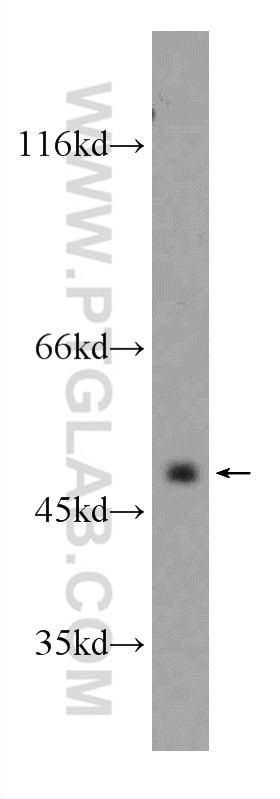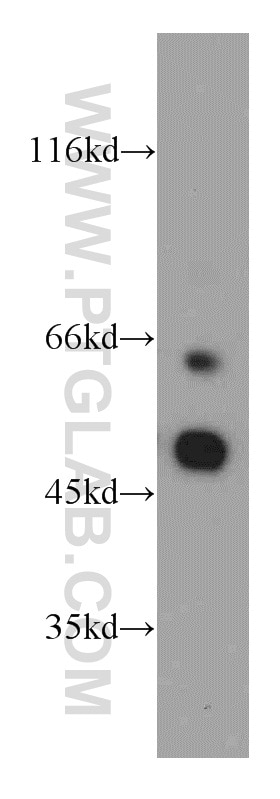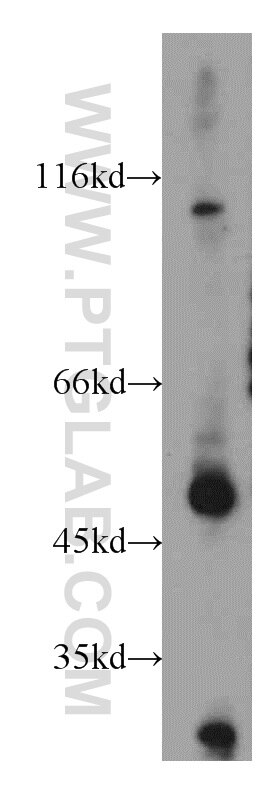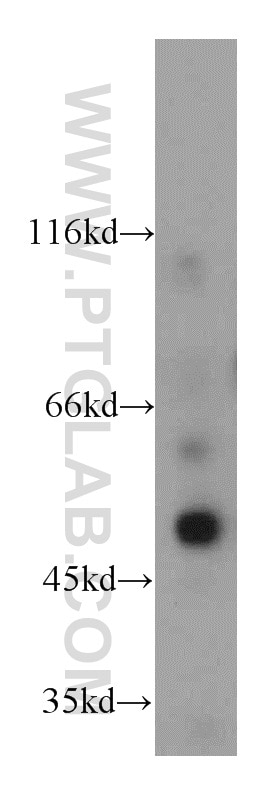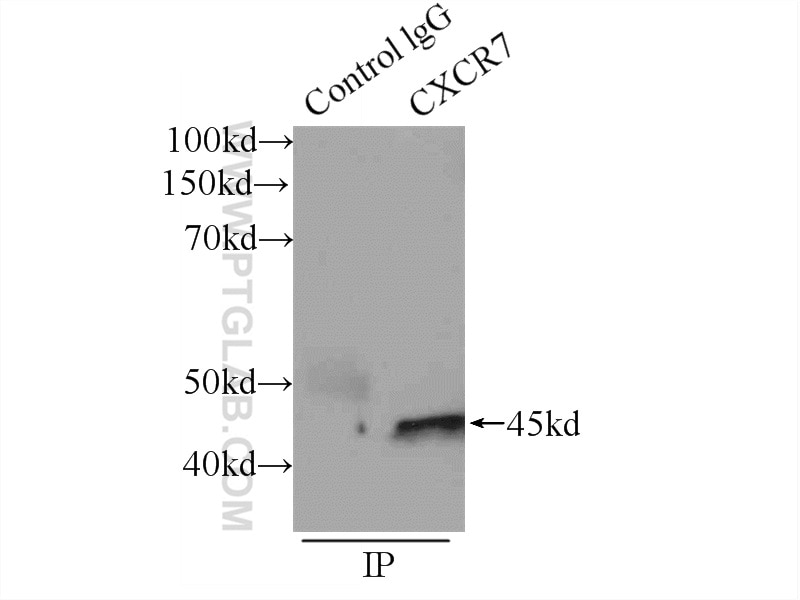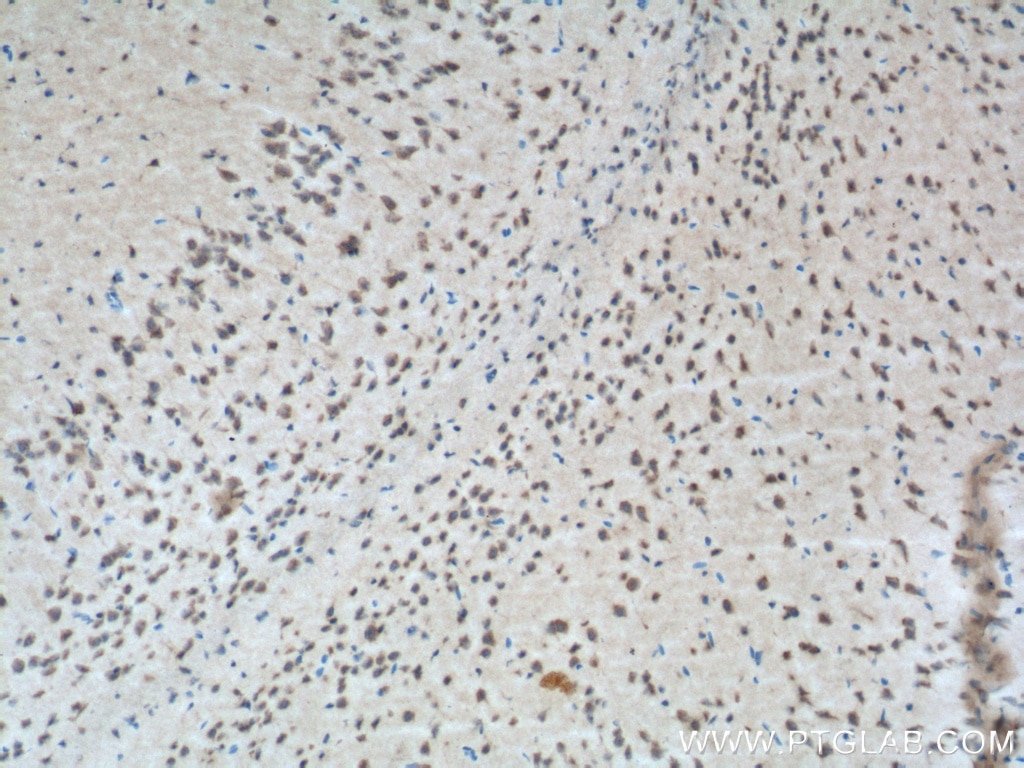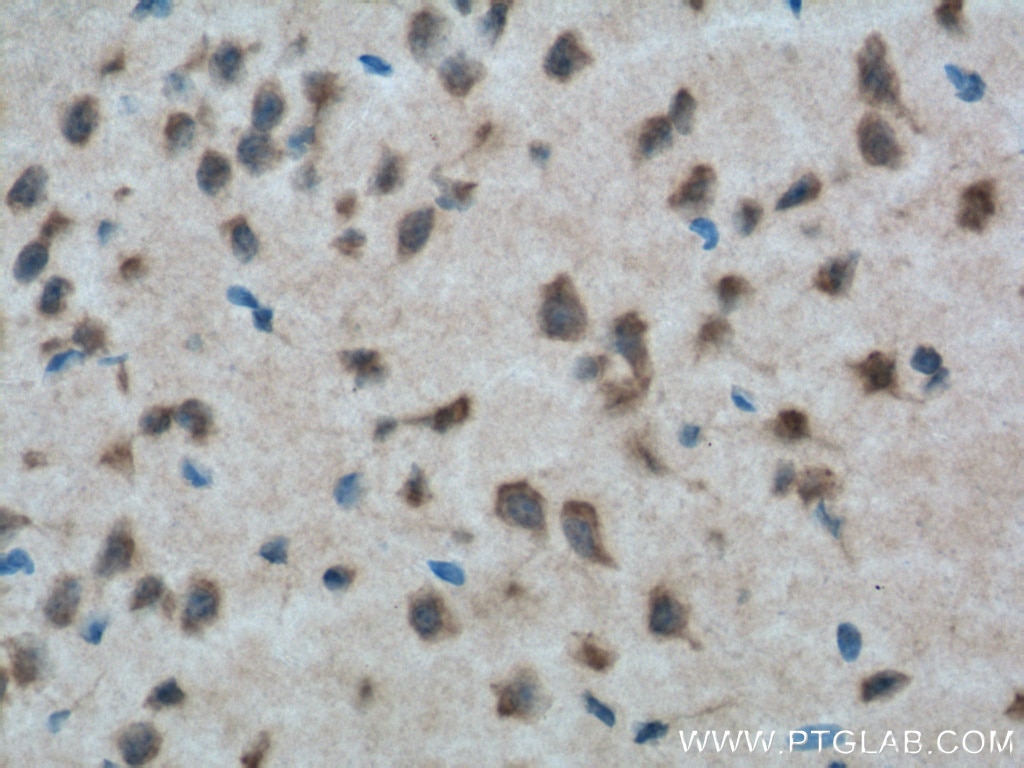Tested Applications
| Positive WB detected in | Raji cells, Jurkat cells, K-562 cells, mouse thymus tissue |
| Positive IP detected in | HUVEC cells |
| Positive IHC detected in | mouse brain tissue Note: suggested antigen retrieval with TE buffer pH 9.0; (*) Alternatively, antigen retrieval may be performed with citrate buffer pH 6.0 |
Recommended dilution
| Application | Dilution |
|---|---|
| Western Blot (WB) | WB : 1:500-1:1000 |
| Immunoprecipitation (IP) | IP : 0.5-4.0 ug for 1.0-3.0 mg of total protein lysate |
| Immunohistochemistry (IHC) | IHC : 1:50-1:500 |
| It is recommended that this reagent should be titrated in each testing system to obtain optimal results. | |
| Sample-dependent, Check data in validation data gallery. | |
Published Applications
| KD/KO | See 4 publications below |
| WB | See 17 publications below |
| IHC | See 8 publications below |
| IF | See 3 publications below |
Product Information
20423-1-AP targets CXCR7 in WB, IHC, IF, IP, ELISA applications and shows reactivity with human, mouse, rat samples.
| Tested Reactivity | human, mouse, rat |
| Cited Reactivity | human, mouse, rat |
| Host / Isotype | Rabbit / IgG |
| Class | Polyclonal |
| Type | Antibody |
| Immunogen |
CatNo: Ag14247 Product name: Recombinant human CXCR7 protein Source: e coli.-derived, PGEX-4T Tag: GST Domain: 273-362 aa of BC036661 Sequence: LLDIFSILHYIPFTCRLEHALFTALHVTQCLSLVHCCVNPVLYSFINRNYRYELMKAFIFKYSAKTGLTKLIDASRVSETEYSALEQSTK Predict reactive species |
| Full Name | chemokine (C-X-C motif) receptor 7 |
| Calculated Molecular Weight | 362 aa, 41 kDa |
| Observed Molecular Weight | 45-50 kDa |
| GenBank Accession Number | BC036661 |
| Gene Symbol | CXCR7 |
| Gene ID (NCBI) | 57007 |
| RRID | AB_10693619 |
| Conjugate | Unconjugated |
| Form | Liquid |
| Purification Method | Antigen affinity purification |
| UNIPROT ID | P25106 |
| Storage Buffer | PBS with 0.02% sodium azide and 50% glycerol, pH 7.3. |
| Storage Conditions | Store at -20°C. Stable for one year after shipment. Aliquoting is unnecessary for -20oC storage. 20ul sizes contain 0.1% BSA. |
Background Information
CXCR7 (C-X-C chemokine receptor type 7), also known as RDC1, is a member of the G-protein coupled receptor family. CXCR7 can bind the chemokines CXCL11 and CXCL12 with high affinity, and it also acts as coreceptor with CXCR4 for a restricted number of HIV isolates. Expression of CXCR7 has been associated with cardiac development as well as with tumor growth and progression. This antibody recognizes endogenous CXCR7, which has an experimentally determined molecular weight of 50 kDa (PMID: 20197403; 20388803).
Publications
| Species | Application | Title |
|---|---|---|
Ann Rheum Dis FGFR3 deficiency enhances CXCL12-dependent chemotaxis of macrophages via upregulating CXCR7 and aggravates joint destruction in mice. | ||
Biomaterials Myocardial delivery of miR30d with peptide-functionalized milk-derived extracellular vesicles for targeted treatment of hypertrophic heart failure | ||
Front Oncol Saikosaponin A Inhibits Triple-Negative Breast Cancer Growth and Metastasis Through Downregulation of CXCR4.
| ||
J Cell Mol Med Interleukin-1β augments the angiogenesis of endothelial progenitor cells in an NF-κB/CXCR7-dependent manner. | ||
Mol Cancer The chemokine receptor CXCR7 interacts with EGFR to promote breast cancer cell proliferation.
| ||
Aging Dis SDF-1/CXCR7 Chemokine Signaling is Induced in the Peri-Infarct Regions in Patients with Ischemic Stroke. |

